How to Help Kids Cope With Traumatic Events
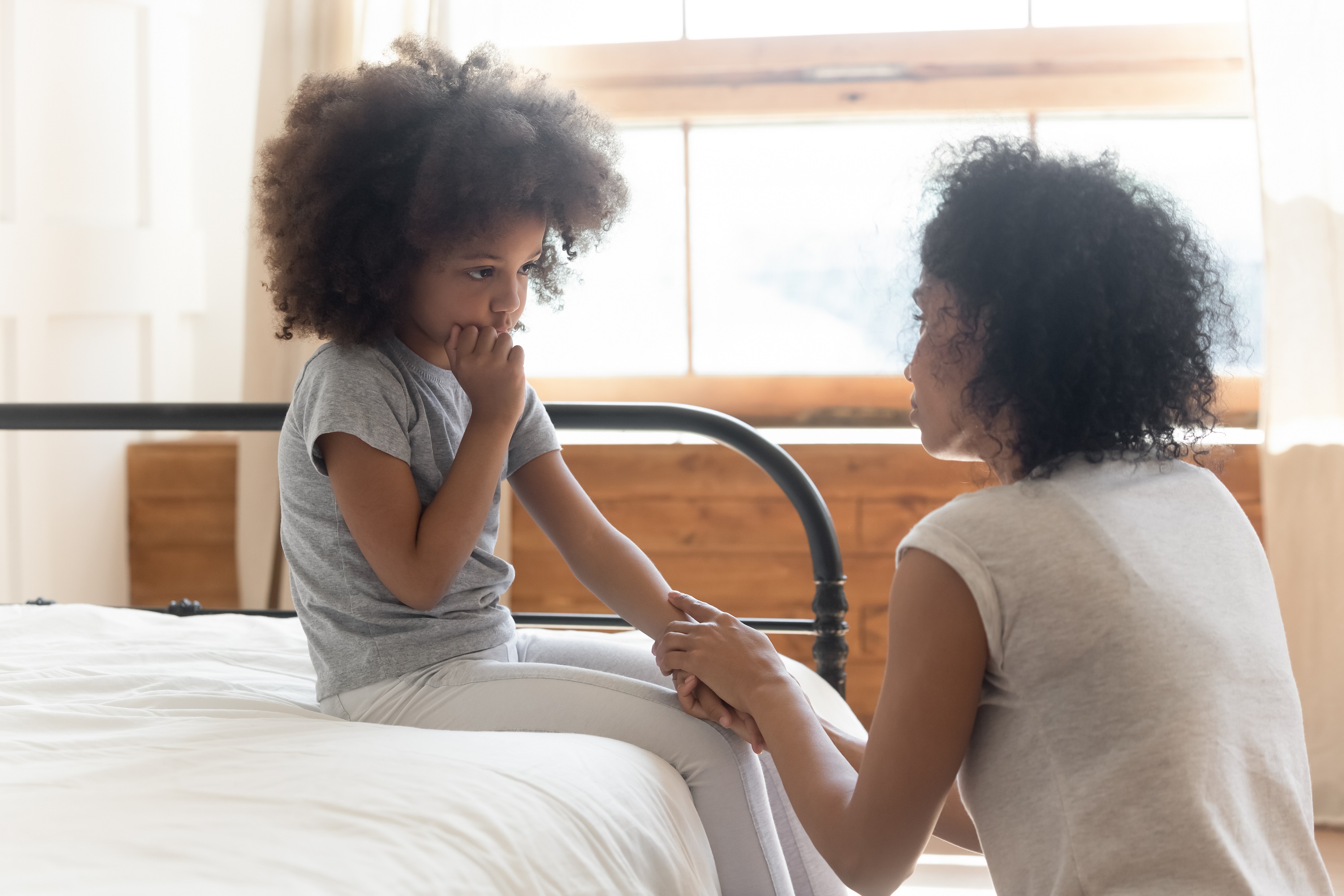
June 27, 2022
Updated September 2025
Tragedies like mass shootings and other forms of violence are hard for adults to handle.. When high-profile tragedies occur, it’s important for caregivers to also think about how to help children cope with what’s happening. But where do you start?
Discussing these events with children means recognizing their world can be dangerous. Terrible things can happen. This idea may threaten their sense of safety and security.
Sometimes protecting younger kids from certain events is a good idea. Other times, it just isn’t possible. If your child has already heard about a tragic event, your silence could make the event seem more frightening.
“We would all prefer that our kids live in a world free from tragedy. But that isn’t the world we live in, which means it’s up to caregivers to provide the support, context and care that’s needed to help kids work through their reactions to these events,” says Lauren Kaczka-Weiss, D.O., child and adolescent psychiatrist at Jersey Shore University Medical Center.
Find Out What Your Child Already Knows
Your conversation with your child depends on their age and how much they already know. “With kids who first learned about the tragic event at school or from friends, for example, parents can begin the conversation by asking what the child has heard about the event, then provide clarity and context based on the child’s answer,” says Dr. Kaczka-Weiss.
Keep Track of Your Children’s Exposure to Media Coverage
In some cases, especially with younger kids, it may make sense to limit access to graphic images of a tragedy. But when older kids look at news coverage of a tragedy, it could be an opportunity to start a conversation about what happened. No matter your child’s age, watch the news together. Look for signs that it may be causing anxiety or fear.
Focus on Listening
Active listening is essential once caregivers begin talking about traumatic events with kids. “For example, caregivers can try to tease out their child’s perspective by asking how they feel about what happened,” says Dr. Kaczka-Weiss.
One thing to watch for is whether a child feels in danger. This can happen after they learn about a traumatic event or think a similar tragedy could happen to them. It is important to make them feel at home.
Share Your Experience with Older Kids
Older kids and teens can learn from how their caregivers processed the news. “Kids are looking to their caregivers not only for knowledge about what happened but for guidance about how to think about it and how to get through it,” says Dr. Kaczka-Weiss. “These are difficult conversations, but they are absolutely essential to helping kids process traumatic news.”
Know When to Get Help
Usually, a child’s feelings of confusion, anxiety or fear after a traumatic event will start to fade quickly. “But if their reaction starts to interfere with their school and daily life, and they seem ‘stuck’ in this state even after a few weeks, they may need help from a primary care physician or a mental health specialist, like a child and adolescent psychiatrist,” says Dr. Kaczka-Weiss.
Next Steps & Resources
- Meet our expert: Lauren Kaczka-Weiss, D.O.
- To make an appointment with Dr. Costanzo or a doctor near you, call 800-822-8905 or visit our website.
- Learn more about child and adolescent psychology at Hackensack Meridian Health.
The material provided through HealthU is intended to be used as general information only and should not replace the advice of your physician. Always consult your physician for individual care.
Find a doctor near me
Clinical Contributors
What Are the Effects of Cyberbullying?

Understand cyberbullying effects on kids. Learn how Dr. Alcera helps families cope. Get support and resources now.
ER vs. Urgent Care vs. Pediatrician
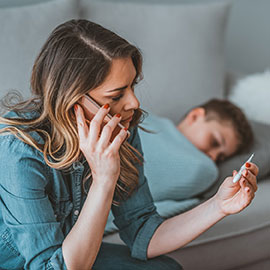
When your child gets sick, it can be hard to know - should you go to the emergency room (ER), urgent care or pediatrician?
Find a doctor near me
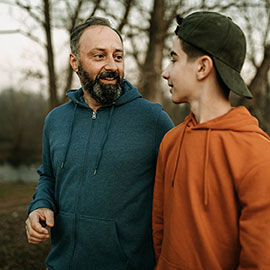
How To Survive ‘The Talk’ With Your Teen
Guide to talking with your teen about sex. Advice from Joseph M. Sanzari Children’s Hospital doctors. Get expert tips and resources now.

How to Help Preteen Daughters Deal with “Mean Girls”
It’s tough to see your daughter experience relational aggression, but you can provide tools for coping, whether they are a victim or a bystander.
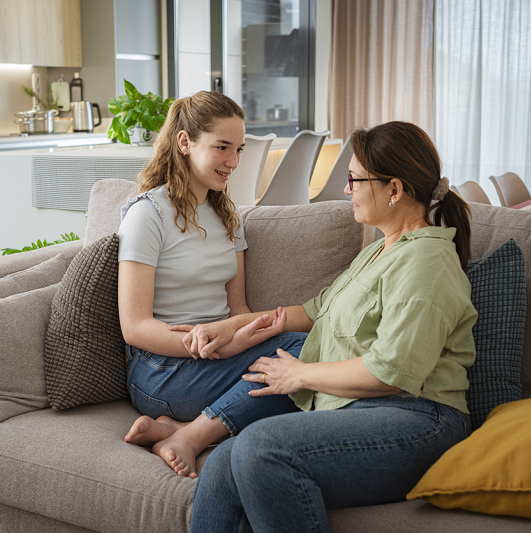
Talking to Your Teen About Drug Abuse
Nervous about having the drug talk with your teen? Use this step-by-step playbook filled with insights from child and adolescent psychiatrist Harshasu Barot, D.O.
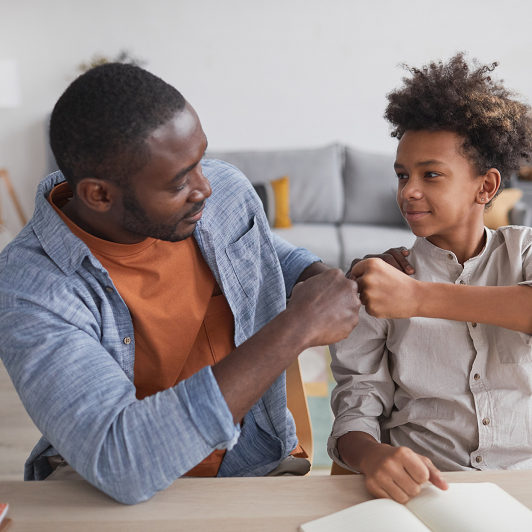
How to Help Your Son Avoid a Toxic Male Culture
Guide your son away from toxic masculinity. Dr. Vieux offers expert advice and resources to build healthy relationships. Call 800-822-8905 for support.

